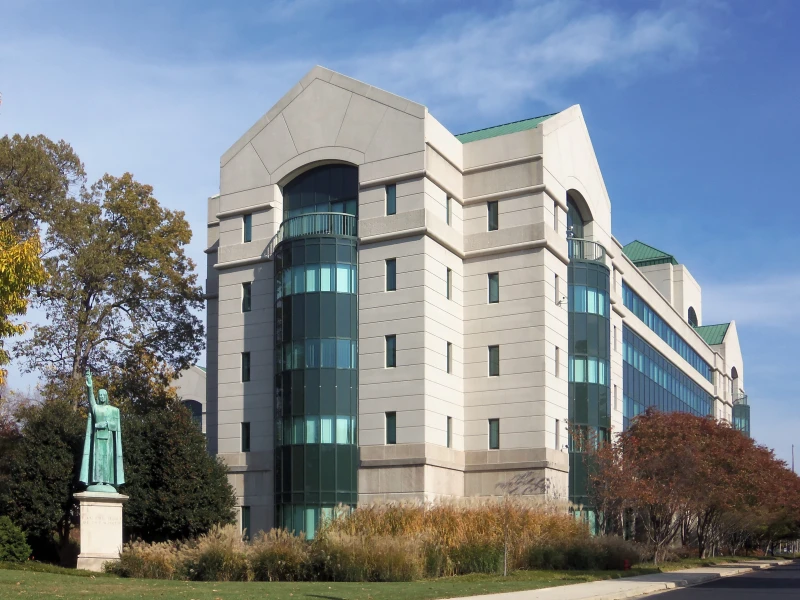

null / Credit: Andy via Flickr (CC BY-NC 2.0)
CNA Staff, Sep 26, 2025 / 16:28 pm (CNA).
Here is a roundup of recent pro-life and abortion-related news:
Pro-life group pledges $9 million to Georgia and Michigan Senate races
A pro-life advocacy group is launching a massive $9 million campaign in the Senate races of Georgia and Michigan.
Susan B. Anthony Pro-Life America and its partner group, Women Speak Out PAC, are working to flip the U.S. Senate in Michigan, pouring $4.5 million into a field effort for the state’s open Senate seat.
Focused in Lansing, Detroit, and Grand Rapids, the pro-life groups aim to expand the U.S. Senate’s pro-life majority. In Michigan, four Planned Parenthoods have closed this year after Congress paused funding for abortion providers.
In Georgia, the same groups will pour $4.5 million into a field effort for Georgia’s U.S. Senate election. The campaign — aiming to defeat U.S. Sen. Jon Ossoff, a Georgia senator who has backed pro-abortion policies — will be focused in Savannah, Augusta, Columbus, and Chattanooga.
SBA Pro-Life America President Marjorie Dannenfelser said in a Sept. 24 statement that the group aims to “stop the abortion lobby from clawing back $500 million in annual Medicaid dollars for their own political machine.”
“No American should be forced to bankroll a brutal industry that kills over 1.1 million unborn children each year, harms women with substandard care, and funnels millions into partisan politics — especially when better, more accessible health care alternatives outnumber Planned Parenthood 15 to 1,” Dannenfelser said.
Pro-life groups celebrate as Google admits to political censorship
Pro-life groups that have experienced censorship in the past are celebrating after Google admitted to political censorship under the Biden administration.
The tech giant admitted the censorship to House Judiciary Committee Chairman Jim Jordan and said it was taking steps to open previously banned YouTube accounts.
Kelsey Pritchard, the political communications director for Susan B. Anthony Pro-Life America, said companies like Google have a pattern of targeting pro-life advocacy groups.
“We are not at all surprised by Google’s admissions of censorship,” Pritchard told CNA.
“For years, tech giants have demonstrated a pattern of bias, actively undermining, suppressing, and censoring groups like Susan B. Anthony Pro-Life America, who share the pro-life message in a highly effective way.”
In a timeline on its website, Susan B. Anthony Pro-Life America detailed censorship and suppression of pro-life groups since 2015 by sites such as Facebook, Yelp, and Google.
For instance, in 2022, Google allegedly shadow banned an online educational resource by Life Issues Institute. In 2021, Google banned Live Action and Heartbeat International’s abortion pill reversal advertisements, including Live Action’s Baby Olivia video, detailing the growth of an unborn child.
SBA Pro-Life America also criticized the Biden administration for allegedly targeting pro-life activists with the law.
“The Biden administration, too, weaponized federal might to target pro-life Americans and even put peaceful activists in jail,” Pritchard said. “The right to voice one’s convictions is a foundational American value and the pro-life movement will always fight back against censorship.”
Students for Life of America spokesperson Jordan Butler, meanwhile, told CNA that the pro-life group “is no stranger to the challenges of free speech in the digital age.”
“While we’ve been fortunate to avoid censorship on platforms like YouTube and Google, TikTok has proven to be a battleground: banning our content 180 times in just 24 hours,” Butler said.
After outcry from pro-life advocates, Butler said the TikTok account, belonging to Lydia Taylor Davis, was restored.
She sees this as “proof that when we stand together, we can push back.”
“That’s why unity matters now more than ever in defending pro-life free speech across America,” Butler said.
“Abortion propaganda is everywhere online, saturating platforms from social media to search engines,” she continued. “Whether it’s digital censorship or campus pushback, we fight relentlessly to protect our voice and our values.”
‘Second-chance-at-life’ bill could protect unborn children across the nation
A group of U.S. congressmen is introducing a bill that could give unborn children a second chance at life even if a mother takes the first pill in the chemical abortion regimen.
U.S. Rep. August Pfluger, R-Texas, recently introduced the Second Chance at Life Act, which is designed to protect unborn children and mothers from the harms of abortion.
The act, co-sponsored by 16 representatives from 13 states, would establish federal informed consent requirements for abortion pills. This would require abortion providers to inform women seeking to terminate their pregnancies that a chemical abortion can be reversible after the first abortion pill is taken.
Pfluger said many women “are pressured into taking the abortion pill without being fully informed of all their options” and later “express deep regret as they come to terms with the loss of their unborn child.”
“It is unacceptable that so many women are never told by their provider that the effects of the first pill can be reversible,” Pfluger said in a Sept. 18 statement.
Pfluger said the legislation will “empower women to make fully informed choices at every stage of the process, protecting their right to know the full details” about the drugs.
Kristan Hawkins, president of Students for Life of America, supported the bill in a statement, noting that women are often pressured into abortion.
“Many mothers regret their abortions and wish they had been told about abortion pill reversal before it was too late,” she said. “And too many women are exposed to the deadly pills by those who are coercing them.”
Senate investigates alleged abortion facilitation by Virginia school faculty
U.S. Sen. Bill Cassidy, R-Louisiana, is investigating allegations that school officials in Virginia facilitated an abortion for a minor and attempted to do the same for another student without notifying their parents.
Cassidy, who chairs the U.S. Senate Health Education, Labor, and Pensions Committee, sent a letter to Superintendent Michelle Reid demanding answers after an investigative reporter broke the news that officials at Fairfax County’s Centreville High School reportedly pressured students to have abortions.
Missouri judge approves pro-life ballot measure, requires plainer language
A Cole County Circuit judge approved a ballot measure that would protect minors and unborn children from transgender surgeries and abortion, respectively, if passed by Missouri voters.
Because the ballot combines protections for minors against transgender surgeries and pro-life protections, activists challenged it in court. But Judge Daniel Green approved the combination in a Sept. 19 ruling, with the caveat that the ballot measure language must explicitly state that it would repeal a previous ballot measure.
The previous ballot measure, passed in 2024, created a right to abortion in the Missouri Constitution.
Wisconsin Planned Parenthood pauses abortions after federal funding cut
Planned Parenthood of Wisconsin will stop scheduling abortions beginning Oct. 1 following federal funding cuts by the Trump administration.
Planned Parenthood of Wisconsin President and CEO Tanya Atkinson said the pause is meant to be temporary as the group deals with Medicaid funding cuts following the “Big Beautiful Bill.” The location will continue to operate and offer other services in the meantime.
The Trump administration temporarily paused any funding for abortion providers such as Planned Parenthood. At least 40 Planned Parenthoods are closing this year.
Read More


